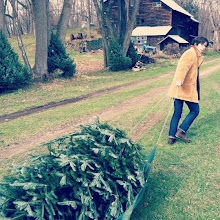
I spent the last month in a near trance-like state -- eating at odd hours, rarely leaving the house, barely capable of carrying on a conversation -- because I was intensely focused on finishing the final mixes for the new Last Names record.
Meanwhile, I was slowly working my way through Haruki Murakami's new novel, 1Q84. The book resonated so much with my situation, I was afraid it might shatter every glass in the house.
The two main characters, Aomame (translates to green peas) and Tengo, find themselves drawn into a slightly different version of reality -- one in which there are two moons in the sky -- without understanding why they're there, or what it means that the world has (slightly) changed, or how to get back to the reality they left behind. No one else seems to notice the changes, so it's a deeply odd and isolating situation.
Working on round after round of mixes, you get the same feeling. You're focused on specific properties of sound, frequency details that no one else pays attention to, and even when you walk away from the desk, you hone in on them. The car engine is too rumbly (needs a high pass filter?); the person you're talking to is too muddled (check the low mids); the doorbell pings too loud and doesn't ring long enough (add compression, find a good attack and release). It's impossible to remember what it was like before you were lost to mixing, and impossible to imagine what it will be like when you're done. You're just stuck, staring at two moons in the sky.
I read slowly, and worked slowly, and now, whenever I think back on the record, I'll picture scenes from the book.






